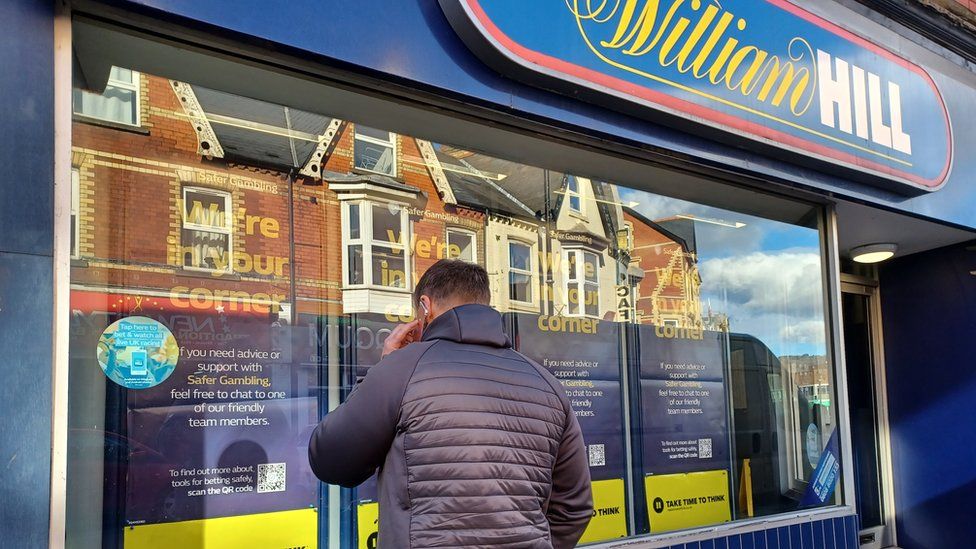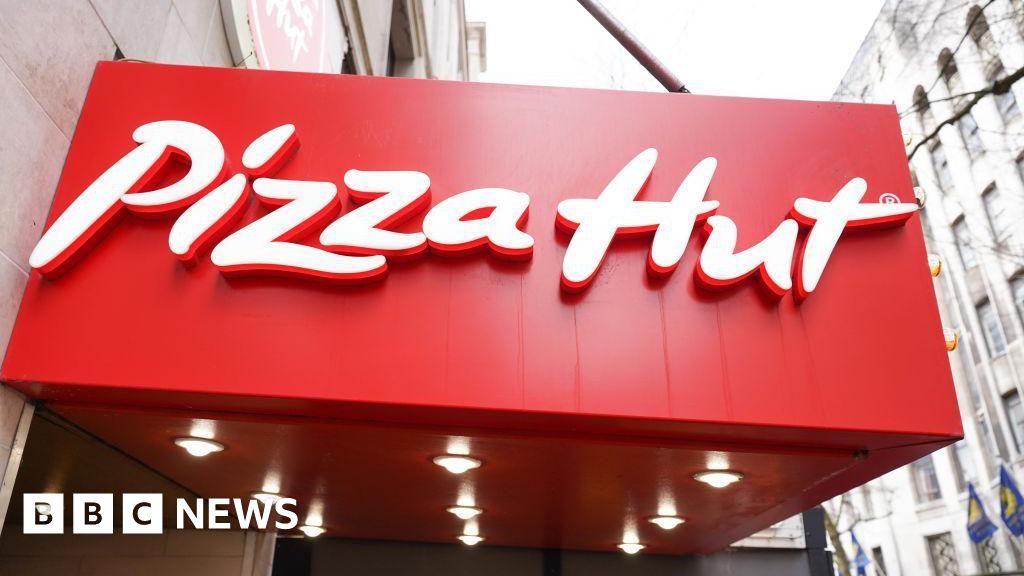ARTICLE AD BOX

Matthew phoned William Hill to close his account, but the firm allowed him to carry on betting
By Lydia Thomas
Producer, Radio 4
A gambling addict has said bookmaker William Hill should have done more to help him stop betting when he was staking thousands on single bets.
Matthew, not his real name, from south Wales, racked up more than £70,000 of debt with William Hill between 2012 and 2019.
Calls showed he was angry and upset, with gambling rules saying bookmakers should intervene at signs of distress.
William Hill said it found no shortcomings in its procedures.
Matthew, a teacher and father of three, had a salary of about £35,000 a year when he started staking small amounts on big events such as the Grand National.
Before long, he was opening online accounts and taking advantage of free bets.
He said this escalated as he "chased" small losses, with his stakes increasing from a couple of pounds to as much as £10,000 at once.
William Hill made him a gold customer - its VIP scheme - and Matthew was soon staking his £2,300 a month take-home salary on payday.
In a Radio 4 documentary named Desperate Calls, Matthew has listened back to 89 phone conversations he had with William Hill.
Most of these were to use a service called "Quick Cash", allowing him to withdraw money directly to the bookmaker without having to wait for money to clear in his bank account.
This service at William Hill is now called CashDirect.
Sometimes he would leave the shop with £5,000 in cash.
Matthew made calls from a phone box as he could no longer afford a mobile phone
Dozens of these calls were made from a dilapidated phone box just outside the shop.
He was spending so much on gambling he could not afford his mobile phone bill.
William Hill said Matthew won many times and withdrew thousands from his account, but Matthew said he would re-stake those winnings almost immediately.
He said: "The dynamics changed rapidly, life revolved around gambling.
"On reflection life was a blur, I struggle to recall much of the last decade, other than some extremely dark thoughts, severe lows and the odd high. Not being focused on family and the people closest to me."
He still owes £70,000 to family and friends.
Many of the calls he made to William Hill showed him to be angry and upset.
The Gambling Commission has rules, saying operators should spot problem gamblers and intervene if they are showing signs of distress.
Matthew said William Hill did not check with him on these points and allowed him to carry on betting.
A member of staff from William Hill's due diligence team phoned Matthew after he said in an email he wanted to "self-exclude" because he was angry over a lack of free bets.
This meant closing his account permanently and banning him from other online betting sites too.
But during the conversation, the staff member discussed self-exclusion and other processes to curb Matthew's gambling, but ultimately allowed him to continue because he thought the complaint was due to the service he was getting and a lack of free bets, rather than a social responsibility issue.
Matthew said he did not say he had a problem because stopping "is not a desirable outcome at that point".
"Underlying all that is you just want to win [the money] back".
It reached a point when Matthew knew he had to stop gambling. His family took him to the GP and he has since had counselling to treat his gambling disorder.
But Matthew wanted to know what had happened: "Once the cycle of gambling was broken I analysed a mountain of data obtained under a subject access request. I wrote a letter of complaint to William Hill."
Image source, Getty Images
Image caption,William Hill said it took customer complaints seriously
William Hill said: "We conducted a thorough investigation into our management of Matthew's account and identified no shortcomings in our safer gambling procedures in relation to Matthew's account requirements during the period in question.
"Ensuring high standards of safer gambling and preventing gambling-related harm is central to the way William Hill operates and we take any customer complaint in this area incredibly seriously, and are committed to driving continuous improvement in this area."
The bookmaker was fined £6.2m in 2018 for failing to protect consumers.
Many of the cases highlighted by the regulator were similar to Matthew's and occurred at about the same time.
A UK government white paper is due to be published soon, with recommendations for strict affordability checks and a new ombudsman for consumer complaints expected.
Currently, people with social responsibility complaints can only write to the Gambling Commission, which cannot comment on what action it is taking, leaving many people in limbo.
Matthew said: "Without significant change there will be many more who fall foul of the pitfalls as I did. More lives destroyed, more families and friendships ruined and more lives lost."
- Desperate Calls, Sunday 19 March at 1.30pm on Radio 4, or listen again via BBC Sounds
Support for addiction issues is available via the BBC Action Line

 1 year ago
18
1 year ago
18








 English (US)
English (US)